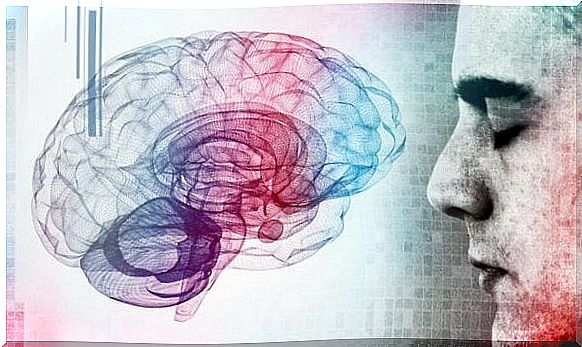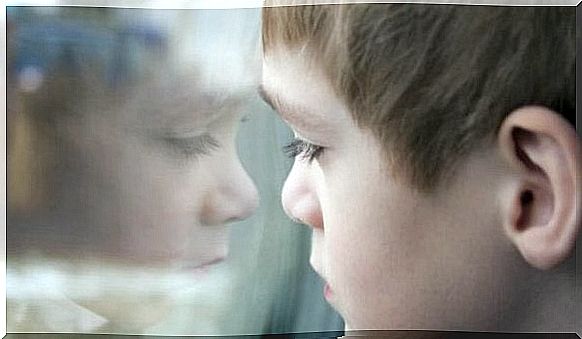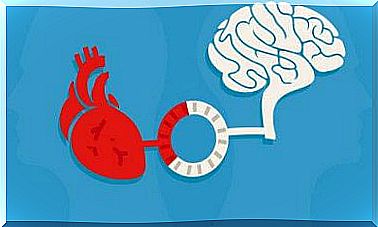Being Extremely Intelligent: The Dark Side

Being extremely intelligent does not always guarantee success or happiness. There is another side of high IQ that we do not always talk about. There is existential anxiety, social isolation, emotional problems or persistent dissatisfaction by not reaching the high goals that a person with such capacity sets.
Some are quick to say that intelligence is not the same as wisdom, and that the latter is something that many of them with an IQ above 120-130 points (but not all) lack.
Therefore, Jeanne Siaud-Facchin, a psychotherapist and one of the most recognized experts in the field of people with great abilities, explains that nothing can be as paradoxical as the brains of these people.
“I want to live the perfect life. The only way to live the perfect life is to live it in seclusion. “
-William James Sidis-
Being very intelligent entails a certain fragility. It is a kind of mind that is capable of creating thousands of ideas at once. They are fast, they are original, and in a matter of seconds they can produce endless thinking and concepts.
But they can not always handle so much information. Their cognitive worlds have so much capacity that a single stimulus is enough for their neurons to fire instantly and give many ideas. But the truth is that they do not always manage to give a concrete or even precise answer.
All of this can create a lot of frustration and confusion . Life is not always wonderful and easy for a person or a child with great abilities. No one has told them how to use their sophisticated brain, so eager for information and productive in ideas.
In fact, life becomes much more complicated, for people with an IQ over 180. As we can see in the story of the most intelligent man in the world with an IQ of 250, their lives can become real tragedies.

To be extremely intelligent, a paradoxical gift
We live in a society where gifted people are honored. We are fascinated by people with unique talents and abilities. We admire those who dominate a particular field of science, art, sports… So much so that there is no shortage of mothers and fathers who say they would love to have a child with a high IQ because the idea that it equal to success being very intelligent, is somehow still very much present in our day to day.
On the other hand, the children themselves have the belief that nothing can be as amazing as being very clever. Could there be anything better? The “gifted”, they say, pass exams with good grades without trying or barely reading homework . Now every teacher, psychologist or parent of a child with great abilities knows that these expectations are not always met.
To begin with , it is very possible that the student with a high IQ goes unnoticed in a good portion of their school life v. It is also likely that they do not get good grades, that they are not good at making friends, and that they are the lost student absorbed in their own world, living in the back rows of a classroom where they do not attract attention.

An intelligence that is hard to control
The reason why being extremely intelligent does not always guarantee being the best in class is multifaceted . First, there is boredom. A child with great abilities does not feel interested or stimulated by things around them and just “interrupts”. They take a passive attitude that can even lead to dumping in school.
In other cases, there are students who do not know how to manage their ideas and thoughts. Sometimes the child can begin to persuade, reflect and deduce when answering a simple exam question. They never answer the question.
In fact, a girl in the book “ Too smart to be happy” explains that while her peers just come up with one thing to find a solution, she finds 25. She feels unable to come to a conclusion.
- Arborescent thinking. One type of reasoning performed by extremely intelligent people is called arborescent thinking. When a stimulus is received, the mind begins to create one idea after another, but in many cases without clear associations. It forms a very dense tree with infinite “branches” that the person cannot control or organize.
Emotional disasters
Another aspect to consider is hypersensitivity . To be extremely intelligent means to have a very deep and transcendental vision of reality and the world.
Sometimes just watching the news can make them feel a lack of understanding, anger and skepticism towards humanity itself.
Emotions capture them. They cannot control the influence of certain events on them, events that go unnoticed by most people.
Things like lies overcome them, as well as social inequality and wars. It is overwhelming to notice that they may not be able to achieve many of the lofty ideals they have in mind.

Contrary to the idea that extremely intelligent people are cold , their ability to empathize is also enormous . Therefore, they may prefer to isolate themselves so as not to suffer. To keep your distance so as not to get too deep into something and get hurt somehow.
Their emotional worlds are complex , but they also channel this intensity through creativity and inspiration.
Being extremely intelligent should not mean that happiness is impossible
At this point, you may think that being extremely intelligent is practically a disorder. But that is not true. Let’s reflect a little.
A gifted child goes through school unnoticed, develops some academic interest and lives in personal isolation, where problems such as anxiety or depression can grow.
On the other hand, the WHO gives us a warning: We should not use IQ alone as a “diagnosis” of giftedness. For intelligence can not be separated from emotions, without hypersensitivity, hyperesthesia, hypermotivation, hyper-maturity, hyperstimulation, without arborescent thinking and thinking…
Being extremely intelligent can mean living in a very private corner where emotions and thoughts are chaotic, deep and very intense.
Our role as parents, educators or psychologists is therefore to offer them appropriate strategies for finding balance and peace. Strategies to reach their potential – and happiness.









